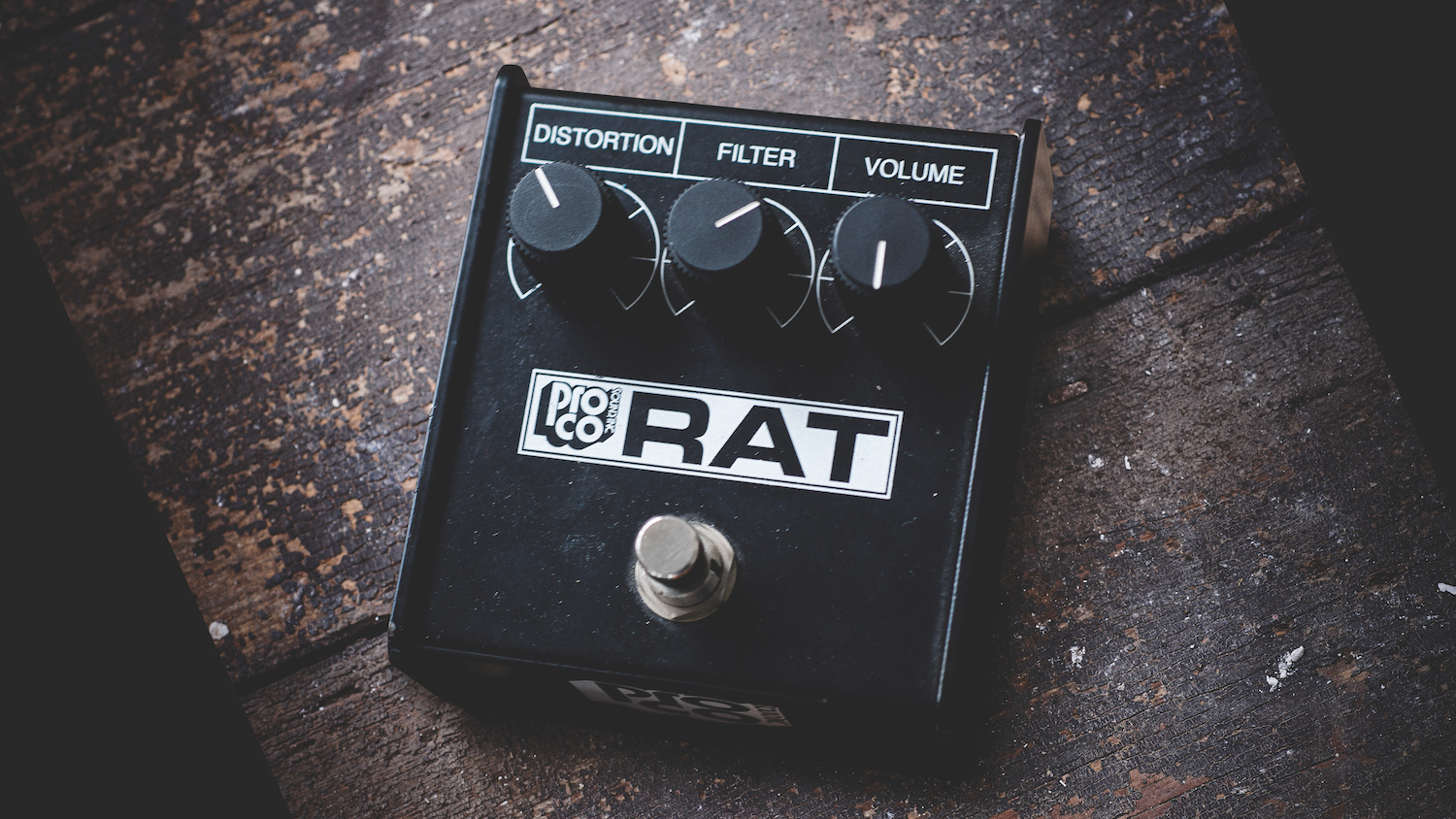
Today’s guitarists are blessed with about 26,844 distortion pedals to choose from, give or take two. But back in the late ’70s the selection was much more limited, with stompboxes like the Electro-Harmonix Big Muff (which some would still call a fuzz unit), MXR Distortion+ and Boss DS-1 leading the way when it came to readily available products from big-name companies.
In 1978, a relatively small sound reinforcement company called ProCo Sound in Kalamazoo, Michigan, quietly introduced their own distinctive take of an op-amp-based distortion circuit combined with diode clipping and called it “The Rat.”
The Rat’s circuit was a happy accident that happened when designer Scott Burnham mistakenly installed a 47 ohm resistor instead of a 470 ohm resistor in his circuit, resulting in a much higher amount of gain with harmonically rich overtones.
One could describe ProCo as being an early “boutique” pedal company at the time, but that’s really a precious description, considering that the products were made in a damp, rat-infested basement (hence the inspiration for the “Rat” name).
Word quickly got out, and by the ’80s a Rat distortion pedal became a commonly sighted fixture on many hair and thrash metal bands’ pedalboards, although a few fusion jazz guitarists also were seen stomping on this furry friend.
Although the Rat pedal went through numerous cosmetic changes over the years, including the original large-format “The Rat” pedal and a smaller (but oddly heavier) Rat pedal that came out in 1984 and became known as the “Rat 2” when an LED on/off indicator was added in 1986, the inner circuit has remained essentially the same since day one until today.
The internet is rife with old wives’ tales and folklore, including arguments about differences between the original LM308 op-amp chips and the OP07 that started appearing around 2005 and myths of the mojo of pedals assembled by a dude nicknamed “Woodcutter.”
Honestly, Rat pedals made today don’t sound all that much different from ones made in the ’80s and ’90s. The biggest tonal differences are usually due to inconsistent component tolerances between one unit and another, so a brand new $90 Rat could actually sound better than a $900 LM308/Woodcutter example.
Two common complaints surface about the Rat’s sound: it cuts bass frequencies and its treble frequencies can be harsh. The bass cut is actually a bonus, as it generates a midrange-dominant tone that cuts through a mix with a band. Yes, it doesn’t sound as massive for bedroom metal, but tones that sound big in isolation inevitably get lost on stage amongst other instruments.
The treble scenario is easily fixed by the pedal itself thanks to its low-pass filter, which is adjusted via the Filter knob. This control works “backwards”, with the “zero” setting providing full treble that becomes darker and warmer as you turn the knob up.
The list of Rat pedal fans is pretty long and impressive, including classic rockers like Jeff Beck, who used one live from the mid-’80s up until 1999 and on the Guitar Shop album, Robert Fripp, David Gilmour, Joe Perry, Andy Summers and Joe Walsh, grunge/alternative guitarists like Kurt Cobain (Nevermind), Dave Grohl, Buzz Osborne of the Melvins, Thurston Moore and Kim Gordon of Sonic Youth, Graham Coxon of Blur and Frank Black with the Pixies, metal players James Hetfield (Kill ’Em All), Trey Azagthoth and Nuno Bettencourt, jazz guitarists Bill Frisell, Arto Lindsay and John Scofield to assorted users like John Ashton (Psychedelic Furs), Nels Cline, Rivers Cuomo (Weezer) and Mike Stroud (Ratatat, appropriately).







